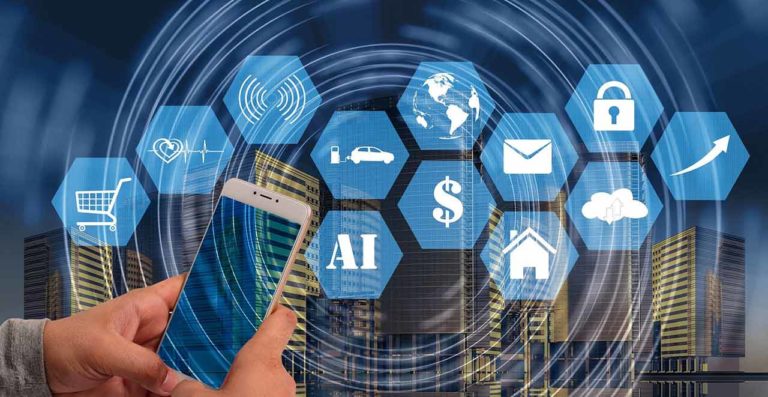
The Internet is awash with content designed to help business professionals succeed now and help the next generation¹ succeed someday. Google searches will yield a bonanza of advice served up as scholarly articles, celebrity secrets and everything in between.
Look beneath the differences in tone and style and you will quickly discover that there’s considerable overlap. Among the most prevalent tips are:
- Learn how to learn
- Be action-oriented
- Cultivate optimism
This is not bad advice, but it’s not focused on the supply chain professional and it’s more accurately categorized as “universal and timeless” rather than suggestive of how tomorrow’s key skills will differ from today’s. In fact, guidance similar to this can be found in Dale Carnegie’s How to Win Friends and Influence People, one of the most successful books in American history. It went through 17 print editions in its first year of publishing and sold 250,000 copies in the first three months. The book has sold over 15 million copies worldwide since, and annually sells in excess of 100,000 copies. Do you know when it was published? 1936!
So let’s talk about supply chain in particular, and the skills we perceive to be essential to the performance of the supply chain professional of the future. By way of preamble…
- The skills listed below are valuable today. We’re simply saying that the relative value is likely to increase;
- The difference between a skill (learned) and a trait (genetic), while interesting and relevant, is beyond the scope of this post. We’re assuming what follows can be learned, but some may have a natural head-start;
- Yes, these are applicable to other fields. It’s a cross-functional world, where disciplines once considered unrelated now routinely inform one another.
Emotional intelligence
During the Industrial Revolution workers required brawn. The Information Age traded muscle for brainpower. The planning professionals of the future will require emotional intelligence. Why? At Halo, we see an AI-abundant world. In that world, where technology will do much of the heavy lifting, a supply chain professional’s emotional intelligence will take on new significance.
Emotional intelligence is the capacity to be aware of, control, and express one’s emotions, and to handle interpersonal relationships with empathy and with an appreciation for nuance. As the world adopts more technology, human skills will define the competitive edge.
A more callous take on this idea: planners will use tools that evolve to the point where forecasts, for example, will be as accurate as we need them to be. But in a global, multi-tiered supply chain, you must have the ability to continually persuade internal and external stakeholders of the value of collaboration.
Accountability
Accountability is the supply chain professional’s obligation to accept responsibility for actions and to disclose the results in a transparent manner. The important point here is that the obligation doesn’t dwindle as tools become more powerful. You remain the boss.
Planning technologies will certainly become more sophisticated and free you from mundane tasks, but you still own the outcomes. You can’t abdicate, can’t blame the algorithm, can’t lament that a “black box” has taken over.
Lateral thinking
Lateral thinking is a method of solving problems using an indirect and creative approach via reasoning (or juxtaposition) that is not immediately obvious. It involves ideas that may not be obtainable using only traditional step-by-step logic.
Lateral thinking often involves a quick switch-over from a familiar pattern to a new, unexpected one. That’s why lateral thinking is often associated with humor – it creates a moment of surprise, generating laughter and new insight, which facilitates the ability to see a different thought pattern which initially was not obvious.
Using supply chain as the context, consider an outbound logistics team that has done all it can to reduce carrier costs, yet company executives continue to press for lower costs and more profit. This could be the moment for some lateral thinking. The inventor of the concept, Edward DeBono, said, “You cannot dig a hole in a different place by digging the one you are in, deeper.“ In other words, re-defining the problem may produce a breakthrough. For example, if the company has an inbound logistics function, look there for opportunities to boost profits. Define the issue as corporate profitability, not carrier costs.
Global citizenship and perspective
Recent interviews of several Gen Z PhD candidates at Massachusetts Institute of Technology’s Computer Science and Artificial Intelligence Laboratory yielded the following insights:
- “We aren’t separated by great differences in raw intelligence. In fact, we’re separated only if we choose to be or if we’re lazy.”
- “The world keeps getting smaller. You can embrace that or become isolated.”
“Cultural sensitivity is its own reward because it leads to stronger relationships, but it also has undeniable practical value.” - “An aptitude for a category of technology, like Visualization, is valuable for a long time. Knowing that a formula in Excel starts with “=” is not.”
- “We have caveman brains, built for focus and not for multi-threading. That’s what computers are for.”
- “Peers and partnerships will always matter more than tools.”
If there’s a theme here, it’s that humanity never goes out of fashion. And perhaps counter-intuitively, supply chain professionals will need better ‘soft skills’ in the future precisely at the same time all of us eagerly await greater contributions from technology.
¹Gen Z is the newest named generation, and were born between 1995 and 2015. They are currently between 4 and 24 years old (nearly 74 million in the U.S.).



